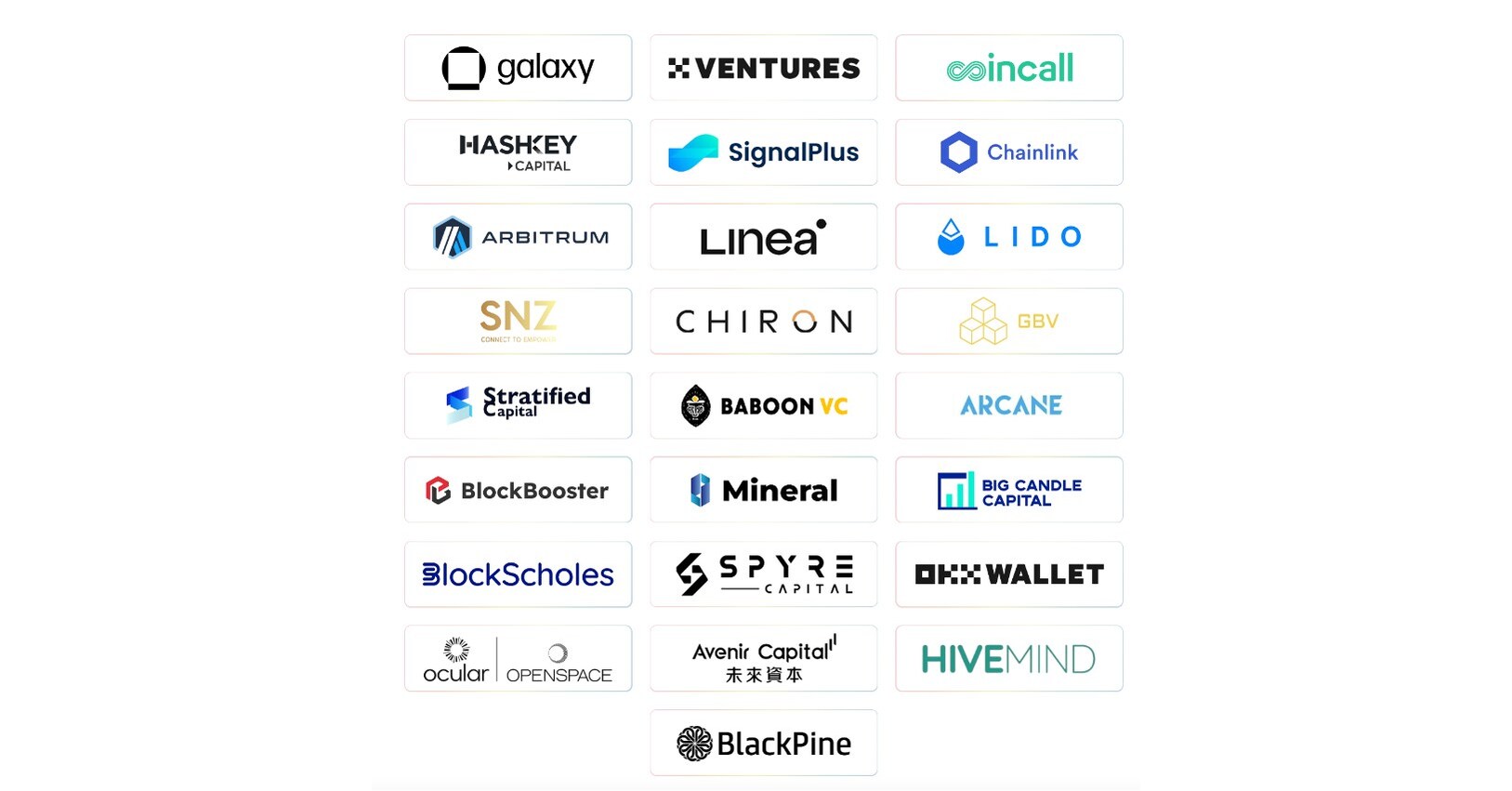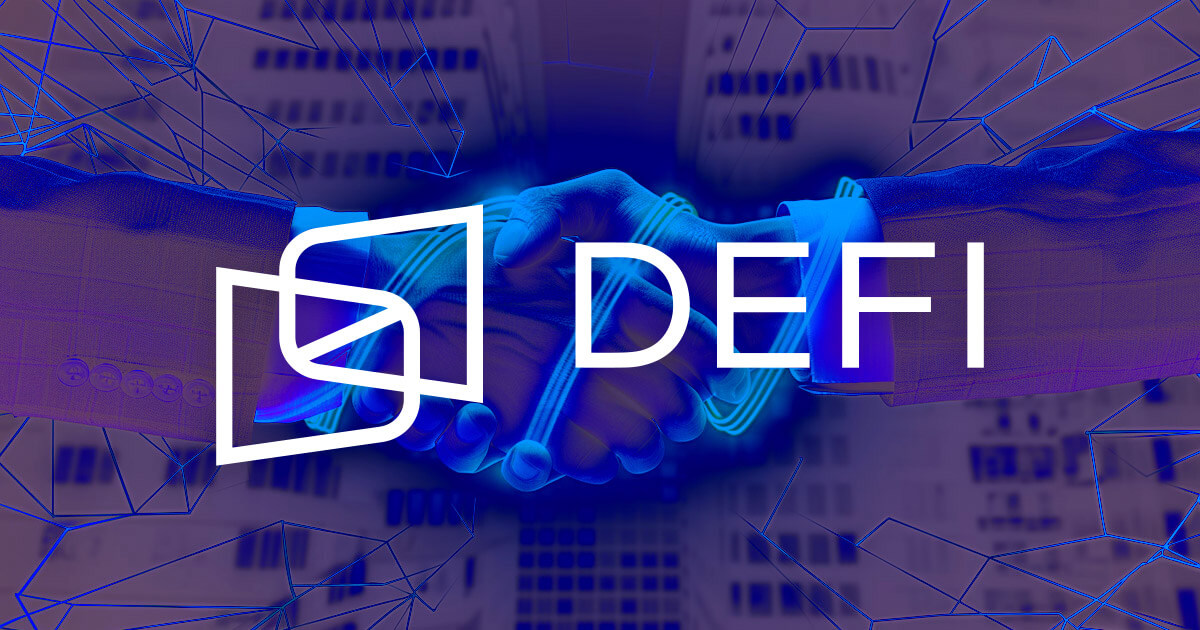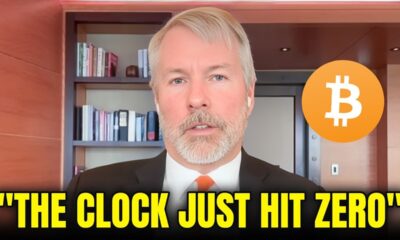DeFi
“Exchange what you want, with who you want”

HONG KONG, June 10, 2024 /PRNewswire/ — The world of decentralized finance (DeFi) is a vital part of the cryptocurrency industry, offering innovative financial solutions outside of traditional banking systems. However, as the industry evolves, DeFi mechanisms become more and more complex. This complexity presents challenges not only for newcomers but also for seasoned enthusiasts, often referred to as “DeFi Degens,” who need a lot of time to understand the sophisticated operations.
Founders
SOFA Workflow Overview
In simpler terms, if early DeFi could be compared to a basic children’s Lego set, today’s DeFi is more akin to a Technic Lego set with thousands of complex pieces. Innovating within DeFi to reduce this complexity and make it more accessible has become a pressing need.
To solve this problem, various DeFi protocols, investment institutions, middleware providers and blockchain builders have come together to form SOFA.org, a decentralized non-profit organization. SOFA.org is dedicated to promoting the highest standards in DeFi, supporting high-quality projects, and advocating for the widespread adoption of blockchain technology in finance. Its founding members include notable names such as Galaxy Asia Trading Ltd, OKX Wallet, Coincall, HashKey Capital, SignalPlus, and Chainlink, among others.
SOFA.org’s grand vision for an on-chain clearing ecosystem
Clearing is one of the most critical elements of DeFi derivatives trading, ensuring the stability of the system and protecting the interests of all participants. Today’s DeFi derivatives are diverse and complex, involving various assets and complex business logic. In the decentralized world, clearing is carried out via smart contracts and decentralized protocols, enabling automated processes with minimal trust required. This real-time clearing ensures the security of participants’ funds and maintains the integrity of transactions.
SOFA.org aims to tackle the complexities of on-chain derivatives with the near-term goal of creating a comprehensive clearing and settlement ecosystem. Essentially, SOFA.org aspires to be the “Android” of DeFi, allowing various DeFi protocols to clear different financial derivatives on its platform. Just like mobile apps installed on different phones, these derivatives positions can operate seamlessly across different protocols. By joining SOFA.org, the protocols will achieve underlying interoperability, allowing them to mutually offset their derivatives positions. This will pave the way for even more complex and sophisticated on-chain financial products.
Overview of SOFA protocols
SOFA.org unveils a set of structured products called SOFA protocols. This innovative protocol brings together several functions of the DeFi product, creating a hybrid derivatives protocol. The initial launch will take place on Ethereum and Arbitrum, with future expansions planned for Linea, X Layer and other EVM-enabled chains.
SOFA protocols offer a new way to manage crypto by making transactions clear and secure. It allows users to benefit from the best products without worrying about who they are trading with or where their money is held. All details are recorded transparently on the blockchain, supporting a wide range of products. Tokenized positions improve capital efficiency and can be pledged on DeFi and centralized platforms as assets. Using ERC-1155 tokens saves money and the system is designed to be durable and user-friendly.
As the first proof of concept of SOFA, they will initially focus on three popular product structures called Rangebound, Bull Trend, and Bear Trend.. All of these products are available in “Earn” or “Surge” format. Additionally, additional product types will be continually added based on user demand and ecosystem feedback.
SOFA Workflow Overview
The volatile nature of crypto asset prices often causes them to move up, down, or sideways. SOFA protocols recognize these patterns and have transformed them into Bull Trend, Bear Trend and Rangebound structures, and available in “Earn” and “Surge” formats to suit different risk preferences.
Earn is designed for users seeking stability and capital preservation. This involves depositing initial funds into established yield protocols such as Compound or AAVE to generate base interest. This process is meticulously reviewed, with governance token holders voting on the choice of protocol. If market conditions match specific criteria, additional profits can be generated.
Earn aims to minimize risks, ensuring the safety of the initial deposit, providing stable returns and providing the opportunity to make additional profits without risking capital. Even though potential returns are lower than high-risk products and profits are capped in highly volatile markets, it remains a reliable option.
For example, if a user opts for a Rangebound structured product with an annual yield of 4% in Earn and predicts that ETH will fluctuate between $3,500 and $3,900 by June 28, they will get an excess return if the ETH remains in this range at expiration. If ETH breaks out of this range, it will still earn a 4% annual return.
Overvoltage aims to maximize potential returns by speculating on high-risk strategies. This product involves predicting a specific price range for crypto assets at a given time. If the price is within the expected range, users receive high returns. However, if the prediction is incorrect, the user will lose the initial deposit.
For example, if a user predicts that the price of Bitcoin will be between $71,250 and $74,000 on June 11 and purchases notes worth $20, the potential return could be $60.28. Conversely, the maximum loss would be $20.
SOFA Protocols’ products look like a combination of various DeFi protocol offerings. The innovation of SOFA protocols lies in integrating the strengths of multiple protocols, providing a more intuitive user interface and user-friendly interactive products. This approach is particularly beneficial for new entrants and those who do not wish to delve deeper into the complexities of DeFi.
SOFA Protocols aims to improve user experience and offer a rich set of financial tools to the market. In doing so, it promotes the further development of the DeFi ecosystem, making it accessible and beneficial to a wider range of users.
Tokenomics: the war of curves
In terms of business model, SOFA.org uses a dual-token model similar to many GameFi projects, incorporating unique game theory mechanics. The dual token system includes the RCH utility token and the SOFA governance token.
RCH token: The total supply is 37 million. Before the official launch, 67.6% (25 million RCH) will be placed in a Uniswap liquidity pool with at least 700 ETH (approximately $2.7 million) to establish the initial price and liquidity. The corresponding Uniswap LP tokens will be destroyed, permanently blocking this part of the liquidity in Uniswap.
The remaining 32.3% of RCH tokens will be released on a fixed schedule. After launch, 12,500 RCH will be unlocked daily, decreasing by 20% every 180 days until all tokens are distributed. This allocation method ensures a gradual release, avoiding market volatility.
Initially, daily RCH production represents only 0.05% of the circulating supply, which has minimal impact on the market. Simultaneously, all revenue from the SOFA.org ecosystem will be used to purchase and burn RCH on Uniswap, further increasing its scarcity and value.
SOFA Token: The launch is planned six months after the project comes into operation. SOFA tokens grant their holders voting rights to directly participate in ecosystem decisions. As a decentralized, non-profit, open source technology organization, all decisions at SOFA.org will be determined by the votes of SOFA token holders.
Early Founding Members, Developers, Ecosystem Advisors, Active Community Members, Early RCH AMM Liquidity Contributors, and CeFi and DeFi protocols supporting SOFA Protocol Position Tokens will have the opportunity to get SOFA tokens.
The economic value of SOFA tokens is directly linked to their governance function. Holders can vote on the introduction of new financial products, the ratio of RCH distribution between introduced products and the ratio of distribution between protocols within the ecosystem. The inclusion of new guarantees and new partners also requires the approval of SOFA holders.
As SOFA.org’s popularity grows, a positive flywheel effect between RCH and SOFA will ignite the market. Increased use of SOFA.org will result in full use of fees to purchase and burn RCH. However, the daily production of RCH is fixed, which further increases its rarity and market value.
As RCH prices increase, some users will increase their use of SOFA.org ecosystem projects to obtain more RCH, while others will purchase SOFA tokens to influence the distribution of RCH. Some projects in the SOFA.org ecosystem may even bribe SOFA holders to obtain higher RCH allocation ratios, thereby boosting project usage.
It seems a new war of curves is on the horizon.
Media Contact:
Lynloo Lee
+65 88107289
[email protected]
SOURCE SOFA.org
DeFi
Pump.Fun is revolutionizing the Ethereum blockchain in terms of daily revenue

The memecoin launchpad saw the largest daily revenue in all of DeFi over the past 24 hours.
Memecoin launchpad Pump.Fun has recorded the highest gross revenue in all of decentralized finance (DeFi) in the last 24 hours, surpassing even Ethereum.
The platform has raised $867,429 in the past 24 hours, compared to $844,276 for Ethereum, according to DeFiLlama. Solana-based Telegram trading bot Trojan was the third-highest revenue generator of the day, as memecoin infrastructure continues to dominate in DeFi.
Pump.Fun generates $315 million in annualized revenue according to DeFiLlama, and has averaged $906,160 per day over the past week.
Income Ranking – Source: DeFiLlama
The memecoin frenzy of the past few months is behind Pump.fun’s dominance. Solana-based memecoins have been the main drug of choice for on-chain degenerates.
The app allows non-technical users to launch their own tokens in minutes. Users can spend as little as $2 to launch their token and are not required to provide liquidity up front. Pump.Fun allows new tokens to trade along a bonding curve until they reach a set market cap of around $75,000, after which the bonding curve will then be burned on Raydium to create a safe liquidity pool.
Pump.Fun generates revenue through accrued fees. The platform charges a 1% fee on transactions that take place on the platform. Once a token is bonded and burned on Raydium, Pump.fun is no longer able to charge the 1% fee.
Ethereum is the blockchain of the second-largest cryptocurrency, Ether, with a market cap of $395 billion. It powers hundreds of applications and thousands of digital assets, and backs over $60 billion in value in smart contracts.
Ethereum generates revenue when users pay fees, called gas and denominated in ETH, to execute transactions and smart contracts.
DeFi
DeFi technologies will improve trading desk with zero-knowledge proofs

DeFi Technologies, a Canadian company financial technology companyis set to enhance its trading infrastructure through a new partnership with Zero Computing, according to a July 30 statement shared with CryptoSlate.
The collaboration aims to integrate zero-knowledge proof tools to boost operations on the Solana And Ethereum blockchains by optimizing its ability to identify and execute arbitrage opportunities.
Additionally, it will improve the performance of its DeFi Alpha trading desk by enhancing its use of ZK-enabled maximum extractable value (MEV Strategies).
Zero knowledge Proof of concept (ZKP) technology provides an additional layer of encryption to ensure transaction confidentiality and has recently been widely adopted in cryptographic applications.
Optimization of trading strategies
DeFi Technologies plans to use these tools to refine DeFi Alpha’s ability to spot low-risk arbitrage opportunities. The trading desk has already generated nearly $100 million in revenue this year, and this new partnership is expected to further enhance its algorithmic strategies and market analysis capabilities.
Zero Computing technology will integrate ZKP’s advanced features into DeFi Alpha’s infrastructure. This upgrade will streamline trading processes, improve transaction privacy, and increase operational efficiency.
According to DeFi Technologies, these improvements will increase the security and sophistication of DeFi Alpha’s trading strategies.
The collaboration will also advance commercial approaches for ZK-enabled MEVs, a new concept in Motor vehicles which focuses on maximizing value through transaction fees and arbitrage opportunities within block production.
Additionally, DeFi Technologies plans to leverage Zero Computing technology to develop new financial products, such as zero-knowledge index exchange-traded products (ETPs).
Olivier Roussy Newton, CEO of DeFi Technologies, said:
“By integrating their cutting-edge zero-knowledge technology, we not only improve the efficiency and privacy of our transactions, but we also pave the way for innovative trading strategies.”
Extending Verifiable Computing to Solana
According to the release, Zero Computing has created a versatile, chain-agnostic platform for generating zero-knowledge proofs. The platform currently supports Ethereum and Solana, and the company plans to expand compatibility with other blockchains in the future.
The company added that it is at the forefront of introducing verifiable computation to the Solana blockchain, enabling complex computations to be executed off-chain with on-chain verification. This development represents a significant step in the expansion of ZKPs across various blockchain ecosystems.
Mentioned in this article
Latest Alpha Market Report
DeFi
Elastos’ BeL2 Secures Starknet Grant to Advance Native Bitcoin Lending and DeFi Solutions

Singapore, Asia, July 29, 2024, Chainwire
- Elastos BeL2 to Partner with StarkWare to Integrate Starknet’s ZKPs and Cairo Programming Language with BeL2 for Native DeFi Applications
- Starknet integration allows BeL2 to provide smart contracts and dapps without moving Bitcoin assets off the mainnet
- Starknet Exchange Validates the Strength of BeL2’s Innovation and Leadership in the Native Bitcoin Ecosystem
Elastos BeL2 (Bitcoin Elastos Layer2) has secured a $25,000 grant from Starknet, a technology leader in the field of zero-knowledge proofs (ZKPs). This significant approval highlights the Elastos BeL2 infrastructure and its critical role in advancing Bitcoin-native DeFi, particularly Bitcoin-native lending. By integrating Starknet’s ZKPs and the Cairo programming language, Elastos’ BeL2 will enhance its ability to deliver smart contracts and decentralized applications (dapps) without moving Bitcoin (BTC) assets off the mainnet. This strategic partnership with Starknet demonstrates the growing acceptance and maturity of the BeL2 infrastructure, reinforcing Elastos’ commitment to market leadership in the evolving Bitcoin DeFi market.
Starknet, developed by StarkWare, is known for its advancements in ZKP technology, which improves the privacy and security of blockchain transactions. ZKPs allow one party to prove to another that a statement is true without revealing any information beyond the validity of the statement itself. This technology is fundamental to the evolution of blockchain networks, which will improve BeL2’s ability to integrate complex smart contracts while preserving the integrity and security of Bitcoin.
“We are thrilled to receive this grant from Starknet and announce our partnership to build tighter integrations with its ZKP technology and the Cairo programming language,” said Sasha Mitchell, Head of Bitcoin Layer 2 at Elastos. “This is a major milestone for BeL2 and a true recognition of the maturity and capabilities of our core technology. This support will allow us to further develop our innovation in native Bitcoin lending as we look to capitalize on the growing acceptance of Bitcoin as a viable alternative financial system.”
A closer integration with Cairo will allow BeL2 to leverage this powerful programming language to enhance Bitcoin’s capabilities and deliver secure, efficient, and scalable decentralized finance (DeFi) applications. Specifically, the relationship with Cairo reinforces BeL2’s core technical innovations, including:
- ZKPs ensure secure and private verification of transactions
- Decentralized Arbitrage Using Collateralized Nodes to Supervise and Enforce Fairness in Native Bitcoin DeFi
- BTC Oracle (NYSE:) facilitates cross-chain interactions where information, not assets, is exchanged while Bitcoin remains on the main infrastructure
BeL2’s vision goes beyond technical innovation and aims to innovate by creating a new financial system. The goal is to build a Bitcoin-backed Bretton Woods system, address global debt crises, and strengthen Bitcoin’s role as a global hard currency. This new system will be anchored in the integrity and security of Bitcoin, providing a stable foundation for decentralized financial applications.
As integration with Starknet and the Cairo programming language continues, BeL2 will deliver further advancements in smart contract capabilities, decentralized arbitration, and innovative financial products. At Token 2049, BeL2 will showcase further innovations in its core technologies, including arbitrators, that will underscore Elastos’ vision for a fairer decentralized financial system rooted in Bitcoin.
About Elastos
Elastos is a public blockchain project that integrates blockchain technology with a suite of redesigned platform components to produce a modern Internet infrastructure that provides intrinsic privacy and ownership protection for digital assets. The mission is to create open source services that are accessible to the world, so developers can create an Internet where individuals own and control their data.
The Elastos SmartWeb platform enables organizations to recalibrate how the Internet operates to better control their own data.
https://www.linkedin.com/company/elastosinfo/
ContactPublic Relations ManagerRoger DarashahElastosroger.darashah@elastoselavation.org
DeFi
Compound Agrees to Distribute 30% of Reserves to COMP Shareholders to End Alleged Attack on Its Governance

Compound will introduce the staking program in exchange for Humpy, a notorious whale accused of launching a governance attack on the protocol, negating a recently adopted governance proposal.
Compound is launching a new staking program for COMP holders as a compromise with Humpy, a notorious DeFi whale accused of launching a governance attack against the veteran DeFi protocol.
On July 29, Bryan Colligan, head of business development at Compound, published a governance proposal outlining plans for a new compound participation product that would pay 30% of the project’s current and future reserves to COMP participants.
Colligan noted that the program was requested by Humpy in exchange for his agreement Proposition 289 — which sought to invest 499,000 COMP worth approximately $24 million into a DeFi vault controlled by Humpy, and which appears to have been forced by Humpy and his associates over the weekend.
“We propose the following staking product that meets Humpy’s stated interests as a recent new delegate and holder of COMP in exchange for the repeal of Proposition 289 due to the governance risks it poses to the protocol,” Colligan said. “The Compound Growth Program…will execute the above commitments, given the immediate repeal of Proposition 289.”
Colligan added that the proposal would expire at 11:59 p.m. EST on July 29. Had Humpy not rescinded Proposition 289, Compound would move forward with it. Proposition 290 — block Humpy using the Compound team’s multi-sig to deploy a new governor contract removing the delegate’s governance power behind Proposition 289.
Hunchback tweeted that Proposition 289 had been repealed a few hours ago. “Glad to have brought Compound Finance back into the spotlight,” they said. added. “StakedComp… finally becomes a yield-generating asset!
Markets reacted favorably to the resolution, with the price of COMP increasing by 6.2% over the past 24 hours, according to CoinGecko.
Attack on governance
Proposition 289 proposed investing 499,000 COMP from the Compound treasury into goldCOMP, a yield-generating vault of the Humpy-linked Golden Boys team.
The proposal passed with nearly 52 percent of the vote on July 28, despite two previous iterations of the proposal being defeated by strong opposition. Can And JulyThe proposals notably asked for only 92,000 COMP, with security researchers warning that any deposit of tokens into the goldCOMP vault would cede their governance power.
In May, Michael Lewellen of Web3 security firm OpenZeppelin, note The first proposal was submitted by a new governance delegate who was suddenly awarded 228,000 COMP by five wallets that got their tokens from the Bybit exchange. Combined with his own tokens, the delegate got 325,333 COMP, which is over 81% of the 400,000 tokens required for a governance proposal to reach quorum.
“We have been alerting the community to the risk that these delegates could support a potential attack on governance,” Lewellen said. “The timing of the new proposal and these recent delegations are suspect.”
Read more: Compound community accuses famous whale of attacking engineering governance
-

 Videos4 weeks ago
Videos4 weeks agoAbsolutely massive: the next higher Bitcoin leg will shatter all expectations – Tom Lee
-

 News12 months ago
News12 months agoVolta Finance Limited – Director/PDMR Shareholding
-

 News12 months ago
News12 months agoModiv Industrial to release Q2 2024 financial results on August 6
-

 News12 months ago
News12 months agoApple to report third-quarter earnings as Wall Street eyes China sales
-

 News12 months ago
News12 months agoNumber of Americans filing for unemployment benefits hits highest level in a year
-

 News1 year ago
News1 year agoInventiva reports 2024 First Quarter Financial Information¹ and provides a corporate update
-

 News1 year ago
News1 year agoLeeds hospitals trust says finances are “critical” amid £110m deficit
-

 Markets1 year ago
Markets1 year agoWhale Investments in Bitcoin Hit $100 Billion in 2024, Fueling Insane Investor Optimism ⋆ ZyCrypto
-

 DeFi1 year ago
DeFi1 year ago🏴☠️ Pump.Fun operated by Insider Exploit
-

 Videos1 year ago
Videos1 year ago$1,000,000 worth of BTC in 2025! Get ready for an UNPRECEDENTED PRICE EXPLOSION – Jack Mallers
-

 Videos1 year ago
Videos1 year agoABSOLUTELY HUGE: Bitcoin is poised for unabated exponential growth – Mark Yusko and Willy Woo
-

 Tech1 year ago
Tech1 year agoBlockDAG ⭐⭐⭐⭐⭐ Review: Is It the Next Big Thing in Cryptocurrency? 5 questions answered












